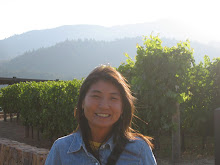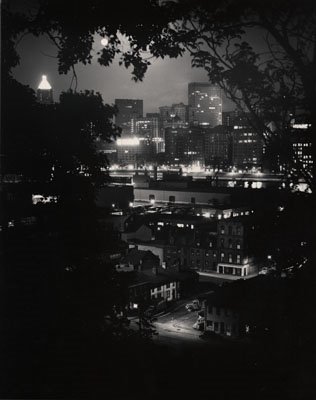
Just finished a fine coming-of-age novel called Jim the Boy by Tony Earley. I have never heard of this writer but I was browsing in the bookstore, the cover caught my eye and I felt in the mood for a well-written but not too serious novel. And that's exactly what I got. I really respect writers who write what they know. And I think Earley is that kind of writer. His characters and setting ring true and I trust that he can recreate this world that is so foreign to me.
Although, in some ways the idyll of a small farming town in the south isn't that foreign. It's reminiscent of other great American writers like Faulkner or Harper Lee or Willa Cather. Although it's foreign to me personally, I'm familiar with the place in my imagination. Just as I feel familiar with the mid-century world of prep schools from books like Catcher in the Rye and A Separate Peace and Lord of the Flies.
Earley has written a sequel to Jim the Boy called The Blue Star. I hope to start reading it today. It's been a long time since I read a novel I really enjoyed and didn't feel like work but also felt satisfying.
What are y'all reading?


I'm afraid that I haven't been reading past my New Yorkers lately. I had finished Junot Diaz's Drown and then re-read Letters to a Young Poet, attempted to start Girl with the Dragon Tattoo while I was on vacation (could not get past the first chapter yet), so right now I am in a reading wasteland littered by my own indecision. I don't lack books to read...I own plenty that I still need to read! Sigh.
ReplyDeleteI'm intrigued by Jim the Boy.
Casey: wonder if you have recommendations on girls-coming-of-age stories? Everywhere I turn I see boys-coming-of-age, dealing with interesting dilemmas. But I can't come up with many interesting girls-coming-of-age stories. I have On Beauty and Sigrid Nunez's The Last of Her Kind. What else?
What an excellent point, Eugenia. The few that come to mind are not too contemporary like The Member of the Wedding and To Kill a Mockingbird. But of contemporary fiction one doesn't easily come to mind. Here's an interesting new crop. http://www.nytimes.com/2010/05/20/books/20newly.html.
ReplyDeleteI read a novel a few months ago called Happy Family that was about a young Chinese woman immigrant's experience nannying for a family with an adopted Chinese little girl in New York City. It was good and had that feel of a coming-of-age novel. Remember that good ol' theme? Innocence lost!
But I don't know. Was she too old for it to qualify? Does the character need to be under the age of 16 for it to count?
But that's an excellent point, Eugenia. Why am I reading all of these books about the male coming-of-age experience??? Where my girls at? And has the genre been so dominated by the male experience that the female experience is completely forgotten and unexpected?
Ah ha! The great Debby speaks! Hi all, I'm Casey's friend from our shared super-dork high school past and am now a PhD candidate in English at Brown. I've been quietly lurking on this blog for months, waiting for the right moment to pipe in. This post seemed apt, since at least 2 of the novels I'm reading for my dissertation fit the category of contemporary female "coming-of-age" narratives (or, to slip on my reading glasses and tweed jacket with the corderoy elbow patches for a moment, bildungsroman): Myla Goldberg's _Bee Season_ and Danzy Senna's _Caucasia_. I highly recommend both. My work is in representations of embodiment in recent ethnic American fiction, particularly by women writers. _Bee Season_ tells the story of a 5th grade girl, the daughter of a Reform cantor, who discovers she has a gift for spelling that ultimately becomes (or so she hopes) a means to kabbalistic transcendence. _Caucasia_ takes place in the 70s, and is about a young, biracial girl (half black, half white), who passes for Jewish to protect her and her mother's identity while they are on the run from the federal authorities. Both are fascinating mediations on the relationship between ethnic and racial identity, gender, and the physiological and metaphoric experiences of female embodiment-- not to mention what it means to be "Jewish" in today's so-called "post-race" or "multiracial" moment. And both center on young girls who have to navigate their own personal and emotional growth through terrains mostly defined and restricted by their fathers.
ReplyDeleteSo while it's certainly a historical fact that the original bildungsroman were male (and white and straight) in focus-- think of 18th century fare like Henry Fielding's novels, Dicken's 19th century rags-to-riches orphans, or even Bellow's (Jewish) Augie March in 1949-- the genre has over the years been widely adopted and adapted by women writers, queer writers, and ethnic "minority" writers.
Two classics of the female, "ethnic" coming-of- age genre are Maxine Hong Kingston's _The Woman Warrior_ (1976) and Alice Walker's _The Color Purple_ (1982). More recent Asian American novels that fit the bill include Jessica Hagedorn's _Dogeaters_ (1990) and Lois-Ann Yamanaka's _Blu's Hanging_ (1997). _Dogeaters_ weaves together several narratives from the 1950s Philippines under the Marcos regime, centering on one upper middle class, queer girl. It's a moving read but if you're not used to that kind of fragmented storytelling style or unfamiliar with the historical background, you might find the plot a bit hard to follow. I highly recommend _Blu's Hanging_, which is about the oldest daughter of a poor Japanese-Hawaiian family. The novel was very controversial among Asian American readers when it came out because of its unflattering portrayal of a Filipino-Hawaiian, but I find it incredibly moving and, as much as the term makes me want to vomit in my mouth a little, heartwarming. And I really loved le thi diem thuy's short, spare, and incredibly lyrical semi-autobiographical novella about a Vietnamese refugeee family in America, _The Ganster We Are All Looking For_ (2004). This isn't really a bildungsroman but I think it counts as "coming-of-age." Gish Jen's _Mona in the Promised Land_ (1994) is a hilarious novel about a Chinese American girl who converts to Judaism. And it takes place in Jen's hometown, which is also my hometown, so I particularly enjoyed that familiarity.
Anywho, I hope that helps destroy your anxiety that there aren't any good female coming-of-age narratives out there, and gives you some suggestions for future reading!
Lurkingly yours,
Debby
And to think, Debby, that we met at a camp for Asians with special needs. Oh, wait, or was it that we were in a normal program and happened to be the Asians with special "social" needs.
ReplyDelete(p.s. I never tell people how we actually met. It's too shameful.)
Holy crap, girl, why have you been creepy and silent so long? Please shine your brilliance on all of us non-Brown Ph.D. candidates as much as possible!
I loved all of those suggestions. I will check many of them out. See, this is why all of you--my brilliant friends--have to post me. You need to educate me.
Debby, are you back again in NYC?